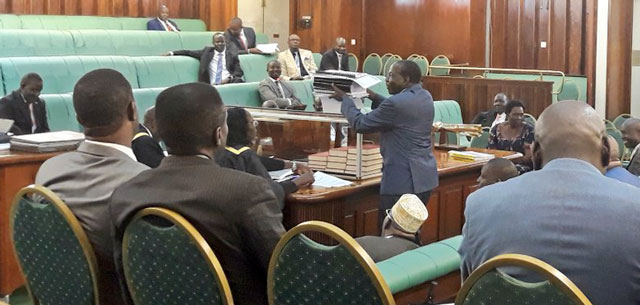
Kampala, Uganda | THE INDEPENDENT | Economists have warned against over running government budgets saying the move will distort government’s planning processes.
Recently, the Ministry of Finance, Planning, and Economic Development (MoFPED) released the Economic Performance report for January 2019. The report revealed that government spent Shs1.286 trillion instead of the planned Shs1.215 trillion thereby exceeding its spending by at least Shs71 billion.
Report findings
According to the report, the expenditure overshoot in January was mainly caused by an increase in pressure on recurrent expenditures such as debt refinancing.
The report also shows that during the same period, government borrowed Shs1.148 trillion from the domestic market, of which Shs594.14b was raised from Treasury Bills and Shs554.23b from T-bonds. Securities worth Shs412.64b were issued to refinance maturing debt.
“Expenditure exceeded programmed amounts by 6 per cent, despite wages, salaries and interest payments being lower than programmed. Development expenditure [on things such as roads, energy and other infrastructures] was 20 per cent lower than programmed,” the report released last week indicates.
During the month, according to the report, government spending on wages and salaries stood at Shs356b lower than Shs370 billion.
The report indicates that there was a Shs326b compared to a huge overspend on domestic development of Shs148b.
Net repayments on loans and other credit facilities, according to the report, was also lower than planned standing at 26 per cent, much of which went to financing hydro power plants in the month under review. However, local tax collections registered marked improvements with direct taxes such as PAYE, among others, collecting 104 per cent out of planned targets while indirect taxes such as VAT mobilized 96 per cent.
Trade taxes recorded over and above targets, pooling 103 per cent. The report also indicates that overall revenue mobilization and grants were 10 per cent below expected, causing a deficit of Shs615b.
Domestic borrowing
Matia Kasaija said that in FY2019/20, domestic borrowing will only be executed mainly through issuance of longer term securities with fixed interest rates to reduce refinancing risks while external financing will continue to be sourced from concessional financing sources. He also said that economic growth is projected to raise from 5.8% in FY2017/18 to 6.2% in the FY2019/20.
Distorted planning
Siragi Magara, a Budget Policy Specialist at CSBAG warns that government’s move to overrun its budget not only affects service delivery in key sectors but also distorts national planning.
****
SOURCE: CSbag
 The Independent Uganda: You get the Truth we Pay the Price
The Independent Uganda: You get the Truth we Pay the Price


